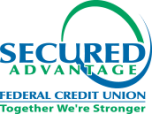The Great Recession created a perfect storm for millennials.
It was the worst financial crisis the United States had seen since the Great Depression, and it left millennials playing catch-up with their finances in the hopes of someday being able to retire. But even as they fight to break to even, millennials continue to accrue debt.
In February, the New York Federal Reserve released a study showing that millennials have accumulated more than $1 trillion of debt including mortgages, auto loans, credit cards, and student loan debt. Additionally, Schwab’s 2019 Modern Wealth report, a May survey from Charles Schwab, revealed that 62 percent of millennials are living paycheck to paycheck while only 38 percent feel financially stable. Despite that statistic, millennials also say they spend nearly $500 a month in nonessential purchases.
While the statistics above look grim, there is still hope for millennials pursuing the “American Dream.” It is important to remember that paying off cars and credit cards, buying a home and working towards retirement are not impossible feats. Like everything else in life, finances are about balance and finding an approach that works for you.
Create a budget
Budgets are not “one size fits all,” and no two people will have the same budget or goals. First, find a strategy that balances rewarding life experiences and saving for the future. Be realistic when crafting your saving and spending goals. For example, you can’t expect to go immediately from saving nothing each month to saving away $400 a month. Start with a number that is easily attainable and increase the amount when it’s feasible.
Automate your finances
It’s easy for us to spend more than we save. The trick to overcoming that urge is to put our finances on autopilot. If your paycheck is set up on direct deposit, have a portion of it directly deposited into a savings account. Also, set up recurring transfers from your checking account into your savings account. Automatic bill pay is another great way to get ahead. Most credit unions offer bill pay to their members to pay monthly bills straight from their accounts. This ensures that bills are paid on time and you don’t have to remember to pay them!
Track your spending
How much money do you spend at Starbucks each month? How many Amazon boxes arrive at your door each week? Chances are, like most of us, you don’t keep track of a $5 purchase here or a $10 purchase there. Those small amounts begin to add up and they add up quickly. There are a number of apps – Mint, Quicken, and Twine – that aggregate your financial transactions and organize them by category so you can create and monitor a budget.
Avoid impulse purchases
Overspending is a common interference to achieving financial goals. The more we give in to unplanned or excessive purchases, the harder it is to save money or stick to a budget. Rather than caving to those impulse buys, implement new habits to help avoid those traps. Give yourself a waiting period for large purchases. During that waiting period, talk to someone – a friend, partner, or spouse who is financially sound – and get their opinion about the purchase before you pull the trigger.
Consider a side hustle
Part-time work is a great way to make a little extra money that helps trim down debt or pad a savings account. There are multiple ride share apps and food delivery apps that allow you to work when you want and as much as you want. If you have a particular skill set like writing or computer work, you can always look for ways to contract out those skills to make a little extra money.
Trim your monthly expenses
Do you have a gym membership you never use? Are you paying for cable you barely watch? Does GrubHub make regular deliveries to your place? The average millennial spends more than $500 a month in nonessential purchases. Look at your budget and see where you can trim items. Replace cable with a streaming service. Make dinner at home. Get rid of that gym membership you never use. You’ll be surprised how quickly you can build back your account by eliminating those unnecessary bills.
At Secured Advantage Federal Credit Union, we offer our members a variety of services including financial planning and credit counseling. We want to help you find a way to save for your future in a way that also meets your immediate needs. Let us help you review your financial situation and find a path that gets you where you want to be.
Give us a call today! 864.967.1402



